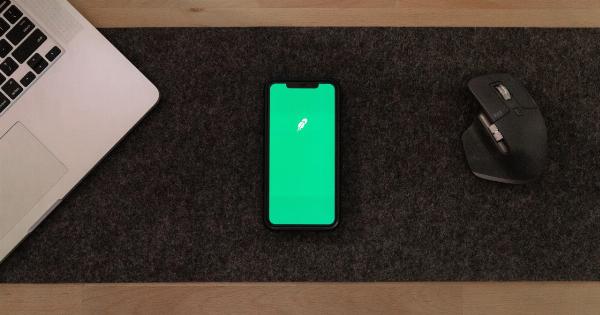Headaches are a common ailment. Almost everyone has had a headache at some point in their life, but for some, headaches are a constant struggle. Chronic headaches can be debilitating and affect a person’s quality of life.
There are many reasons why people develop chronic headaches, but one factor that often goes overlooked is the impact of work or lack thereof.
What Are Chronic Headaches?
Chronic headaches are defined as headaches that occur on 15 or more days per month for at least three months. These headaches can be either tension-type headaches or migraines, both of which can significantly impact a person’s life.
What Causes Chronic Headaches?
There are many factors that can cause chronic headaches. Some of the most common include:.
- Stress: Stress is a leading cause of headaches, both tension-type headaches, and migraines. When a person is stressed, their body releases hormones that can cause the muscles in the neck and scalp to tense up, leading to tension-type headaches.
- Changes in Sleep Habits: Changes in sleep habits can cause headaches. Whether a person is getting too much or too little sleep, it can disrupt the body’s normal circadian rhythms and lead to headaches.
- Dehydration: Dehydration can cause headaches. When a person is dehydrated, their body loses fluids, and the brain can shrink slightly, causing pain and discomfort.
- Diet: Certain foods can trigger headaches in some people. Common culprits include processed foods, caffeine, alcohol, and artificial sweeteners.
- Posture: Poor posture can cause tension-type headaches, particularly if a person spends a lot of time sitting at a desk or computer.
The Impact of Work on Chronic Headaches
Many factors related to work can contribute to chronic headaches. For some people, the stress of work can trigger headaches, while for others, a lack of stimulation or physical activity can cause headaches.
Here are some specific ways that work can impact headaches:.
Stress
As mentioned earlier, stress is a leading cause of headaches. Stress in the workplace can come from a variety of sources, including tight deadlines, difficult coworkers, and long hours.
If a person is experiencing stress at work, they may develop tension-type headaches as a result.
Sedentary Work
Many jobs require sitting at a desk or in front of a computer for long periods. This sedentary lifestyle, combined with poor posture, can cause tension-type headaches.
Sitting for extended periods can cause the muscles in the neck and back to tense up, leading to headaches.
Irregular Work Schedules
Work schedules that are constantly changing, such as those that involve shift work or irregular hours, can disrupt a person’s normal sleep patterns. As mentioned earlier, changes in sleep habits can cause headaches.
Monotonous Work
Performing the same task repeatedly can cause headaches in some people. This type of work does not provide the brain with enough stimulation, leading to tension-type headaches.
Workload
Heavy workloads can cause stress, which can trigger headaches. Additionally, having too much work to do can cause a person to skip meals or eat unhealthy food, both of which can trigger headaches.
Managing Chronic Headaches Related to Work
If you are experiencing chronic headaches related to work, there are steps you can take to manage them. Here are some ideas:.
Talk to Your Employer
If your job is causing you stress or if you are experiencing headaches as a result of your work, talk to your employer. They may be able to make changes to your workload or schedule to help you manage your headaches.
Take Breaks
If you have a sedentary job, taking frequent breaks to stand up and stretch can help alleviate tension-type headaches. Additionally, taking regular breaks from staring at a computer screen can help reduce eye strain, which can contribute to headaches.
Get Regular Exercise
Exercise is a great way to relieve stress and combat tension-type headaches. Even small amounts of physical activity, such as taking a walk during your lunch break, can help.
Practice Good Sleep Hygiene
Practicing good sleep hygiene, such as going to bed and waking up at the same time each day, can help regulate your sleep patterns and reduce the risk of headaches. Additionally, keeping your bedroom cool and dark can help promote better sleep.
Eat a Healthy Diet
It’s essential to eat a healthy diet to prevent headaches. Aim to eat a diet that is rich in fruits, vegetables, lean proteins, and whole grains. Avoid processed foods, caffeine, alcohol, and artificial sweeteners, as these can trigger headaches.
Conclusion
Chronic headaches can significantly impact a person’s life, causing pain and discomfort on a regular basis. While there are many reasons why people develop chronic headaches, work-related factors are often overlooked.
For some, the stress of work can trigger tension-type headaches, while for others, a lack of physical activity or stimulation can be the cause. If you are experiencing chronic headaches related to work, it’s essential to take steps to manage them. Talk to your employer, take frequent breaks, get regular exercise, practice good sleep hygiene, and eat a healthy diet.
By making these changes, you can reduce the frequency and severity of your headaches, and improve your quality of life.





























